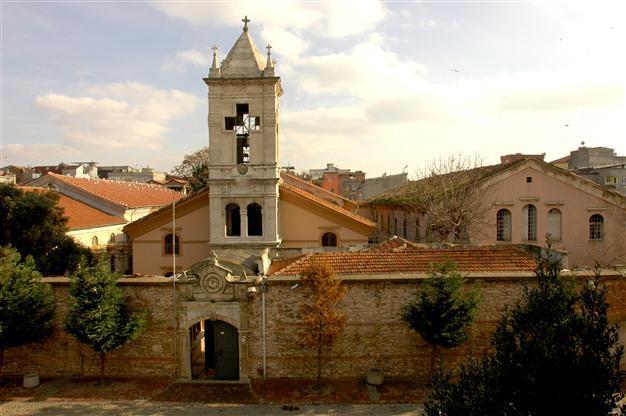Turkey’s Chief Ombudsman gives green light to payment of priests’ salaries by state
ANKARA - Rifat Başaran

The Armenian Patriarch of Istanbul Church, located in Istanbul’s touristic neighborhood of Kumkapı is seen in this file photo.
The Chief Ombudsman’s Office of Turkey has given the green light to the Directorate General of Religious Affairs (Diyanet) to pay priests’ salaries, upon an appeal by Nazaret Ozsahakyan, the head of Boyacıköy Surp Yerits Mangants Armenian Church Foundation.The chief ombudsman made its decision despite opposing views from the Fener Greek Orthodox Patriarchate and Turkey’s Armenian Patriarchate, along with a “refusal” from Ombudsman Mehmet Elkatmış.
Chief Ombudsman Nihat Ömeroğlu delivered an advisory opinion in which he urged “eliminating unjust treatment by amendment of related regulations.”
While reviewing Ozsahakyan’s appeal, the Chief Ombudsman’s Office also asked for the opinions of Turkey’s chief rabbi and the Syriac Orthodox Church Metropolitan, in addition to the Fener Greek Orthodox Patriarchate and Turkey’s Armenian Patriarchate.
“In line with our archaic traditions, fees and salaries of officiates of the church have been met by the community who are members of the church,” Turkey’s Armenian Patriarchate said, noting that members of its clerical council had concluded that resuming this “archaic tradition would be appropriate.”
Financial contribution provided by the state should be directly conveyed to their centers, the Fener Greek Orthodox Patriarchate said, adding that it had met with the spiritual leaders of the Armenian, Syriac and Jewish communities. They reasoned that officiates are “subject to a hierarchical and traditional structure and managing order according to Christianity and Judaism.”
The Diyanet was created in 1924 to replace the Ottoman Sheikh al-Islam, the mufti with the authority to confirm new sultans and who also served as chief legal adviser. The caliphate itself was abolished in 1924, part of early modernizing efforts by Mustafa Kemal Atatürk, who founded the secular Republic of Turkey on the ruins of the Ottoman Empire.
Ankara recognizes only the Greek, Armenian and Jewish communities as religious minorities under the 1923 Lausanne Treaty, the founding accord of modern-day Turkey.
The Diyanet drafts a weekly sermon delivered at the nation’s 85,000 mosques, which it supervises. It also employs all of Turkey’s imams, who are technically considered civil servants trained by the state.
















